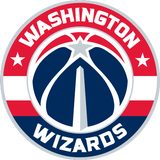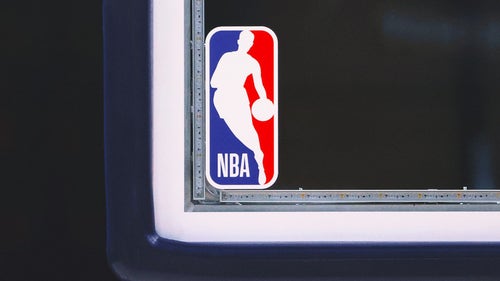
Chasing The Cavs: How East Contenders Match Up With Cleveland
Constructing a counter lineup to the Warriors has become one of the NBA’s favorite parlor games. Even with price as no object, the very idea of matching up with that much size, speed, and shooting range is daunting, all but requiring a collection of hand-picked All-NBA talent in response.
The Cavs, to their credit, present many of the same problems—even on hypothetical grounds. For all of Cleveland’s apparent vulnerability, the reality is that there aren’t many teams or lineups that have fared consistently well against the Cavs this season. Only a handful of players can respectably guard LeBron James. Only a select group of others do much of any good in challenging Kyrie Irving. That Cleveland’s style of play, when healthy, also demands stout coverage of the three-point line, a workable answer for Kevin Love, and reliable rim protection stretches most opponents well beyond their means.

This is what contending hopefuls in the East are left to deal with. So let’s measure up their best shot—the most sensible five-man lineups that the top challengers in the East can muster. Any chance of beating Cleveland relies on groupings like these sorting out their deficiencies and foiling what the Cavs do best. Godspeed.

Washington: John Wall, Bradley Beal, Marcin Gortat, Otto Porter, Markieff Morris
No five-man combination in the league has logged more minutes this season than Washington’s starters. It shows. Wall has an easy pick-and-roll chemistry with Gortat refined over a half-decade of refinement. Beal is at his most comfortable when allowed to hunt offense without being solely responsible for it. Porter has developed into a perfect spacer (with ridiculous 71.1% true shooting in this lineup, specifically) and Morris, for the most part, has stuck to the script and contributed in the flex role Washington needs.
That familiarity—the better-than-the-sum-of-its-parts boost that comes with it—will be crucial in helping reconcile some suboptimal matchups. Scott Brooks essentially tethered Wall to Irving this season, leaving no opportunity for one of the craftiest shot creators in the game to abuse Washington’s overmatched backcourt. Wall does fine here. He has the length to bother Irving’s shot and the quickness to close the gap in time, though on some nights Wall invests too much energy in running the offense to play airtight defense. That kind of tradeoff is inevitable, if particularly tricky to manage against an opponent like the Cavs.

To compound the problem, neither Porter nor Morris can do much against LeBron. Both are fine defenders; Porter’s length allows him to control space and angles while Morris has the physicality to throw most opponents off their center. James just isn’t bothered much by either, as evidenced by the 29.5 points (second-highest among all Cavs opponents) on 58.3% shooting, 11 assists, and 8.5 rebounds he’s averaged in the season series to date. Washington’s collective defense was able to tease out some turnovers from LeBron, though ultimately Washington is left with merely solid defenders to withstand the best player in the world.
Their odds aren’t great. This is the best the Wizards have to offer—a nice blend of offense and defense, synergized through experience—and yet the Cavs have blown this lineup out in their two meetings this season. Cleveland tends to do that. It can be so difficult to withstand the Cavs’ starting and closing lineups that so much of beating them comes down to minimizing damage and making up ground elsewhere. These starters have the ability to weather those storms and are malleable enough to incorporate some other pieces along the way. Washington’s bench is generally a drag, but enough good minutes from Ian Mahinmi, Kelly Oubre, or Bojan Bogdanovic on the right night could give these starters a fighting chance.

Toronto: Kyle Lowry, DeMar DeRozan, Serge Ibaka, DeMarre Carroll, Patrick Patterson
Toronto’s best shot of pushing Cleveland relies on a lineup yet to register a single minute. Kyle Lowry’s wrist injury overlapped with Serge Ibaka’s arrival just enough as to prevent them from ever playing together. Now Lowry is reportedly set to miss four-plus weeks as a result of surgery on his right wrist – news that, in itself, jeopardizes the Raptors’ place in the Eastern Conference pecking order. Lowry has to be fully functional for Toronto to even dream of an upset. His shooting is too important in balancing the floor, his improvisation is too valuable against a keyed-in Cavs defense, and his defense has to hold up given the lack of alternatives.
What’s worse: Losing Lowry for most if not all of the remaining regular season games only pushes up the timetable for when Toronto can expect to meet Cleveland in the playoffs. Recent signs of life on defense bode well for the Raps, but Washington is just a game behind in the loss column and Atlanta only two games back. There’s enough fluff on Toronto’s schedule (theirs is the eighth-easiest in the league the rest of the way) to keep them in the mix for the three seed. It just might not be enough. And even if it is, DeRozan may be carrying so much of the team’s creative responsibility over this final stretch that it burdens his already shaky playoff performance.

In any case case, Lowry could be forced to reckon with a juggernaut opponent just a few weeks after his return. This group is the best way of managing it; Jonas Valanciunas is almost untenable against Cleveland, what with the way stretchier bigs can throw him out of sorts and poor pick-and-roll defense in general makes him an easy target. The Cavs leave no allowance for that sort of thing. James and Irving are too relentless in exploiting weaknesses for Valanciunas to be on the floor in high-leverage moments, and the matchups of those occasions aren’t likely to favor him anyway. Tethering Valanciunas to Tristan Thompson—whose offensive rebounding could burn the Raps when Valanciunas is off the floor—could make the most rotational sense. The pairing of Ibaka and Patterson covers well in most every other area. It has the defensive range to handle switching, the speed to cover out to the three-point line, and solid rim protection for a small-ball look. Cleveland hammers opponents by nudging them into small ball and then forcing them to defend LeBron.
DeMarre Carroll has never been particularly effective in the latter assignment, but at least he now has versatile help behind him. The goal of the defense is to make do and give Toronto’s leading scorers a chance. This group is as well-balanced and well-spaced as the Raps could hope for. To put up a fight, a top-five offense will have to stay functional under playoff scrutiny.

Boston: Isaiah Thomas, Avery Bradley, Al Horford, Jae Crowder, Marcus Smart/Amir Johnson
Brad Stevens will have so many lineup options to tinker with in a series against Cleveland—none of which are all that promising. Therein lies the problem. Thomas, Horford, and Crowder are essential personnel. Everything else is negotiable, though Boston is left to fill things out with good players who can’t give the Celtics exactly what they need.
Tabbing Crowder to defend James (who has shot a mortal 46.7% with Crowder on the floor this season, per NBA.com, while registering almost as many turnovers as assists) gives the Cavaliers all the freedom they need to dictate the terms of a playoff series. Keeping Kevin Love on the floor could force Stevens to respond with Amir Johnson or Jonas Jerebko. Taking him off the floor to play smaller makes things easier for Marcus Smart, but the small-ball Cavs don’t offer the best opportunity for Smart and Bradley to leverage their talents in tandem. One will undoubtedly cross-match to defend Irving. The other will be left to chase the likes of J.R. Smith, Kyle Korver, or Iman Shumpert—another of which will be looking to work over the smaller Thomas at every opportunity.
Slowing the Cavs down seems feasible with this group, but both the big and small lineup options project worrisome vulnerabilities. At least when running smaller, Boston has all the means it needs to cover; even if Tyronn Lue trots Love back out to counter, there are worst results for a defense than having it prioritize Love at the expense of Irving and James to post a scrappy, undersized defender. The problem is what the Celtics give up in rotation in that alignment—not to mention its terrifying defensive rebounding, even by Boston’s standards. Bringing everything to balance will require the Celtics’ best, most consistent basketball. Anything less will leave them chasing matchups, plugging one hole at the expense of another.



